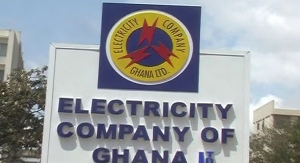Business News of Thursday, 16 January 2025
Source: www.ghanaweb.com
The Electricity Company of Ghana (ECG) has come under scrutiny for operating approximately 84 bank accounts with 20 different banks, despite directives to manage a single account for all revenue collections and disbursements.
An audit conducted by PricewaterhouseCoopers (PwC) has revealed that the ECG’s financial management practices are in violation of a key guideline set as part on conditionalities by the International Monetary Fund (IMF).
Under Ghana’s current IMF-supported program, the ECG was instructed to streamline its financial operations by maintaining only one bank account to consolidate revenue collections and disbursements.
However, the audit found that the state-owned company continues to operate multiple accounts across several banks, complicating its financial processes and potentially affecting transparency.
“We observed through our validation procedures that ECG operates multiple bank accounts (84 accounts) with 20 different banks. This scattered approach to banking is inconsistent with the directive to centralize all financial activities under a single collection account,” the PwC audit noted.
Additionally, PwC have suggested that ECG may want to consider consolidating its operations by selecting a bank with more extensive branches nationwide.
This is expected to not only minimize the need for several accounts across multiple banks but would also streamline operations and improve financial transparency.
The PwC audit findings also highlighted significant concerns regarding ECG’s payment practices as it uncovered that ECG allegedly failed to make timely payments to Independent Power Producers (IPPs) and regulatory bodies, despite being obligated by the CWM (Cash Water Management) guidelines to make payments by the 22nd of each month.
This failure to meet payment deadlines is a breach of ECG’s contractual obligations which could lead to further financial constraints for the state-owned entity.
“Untimely payments to IPPs and regulatory bodies have led to delays and disruptions in the energy sector, undermining the smooth operation of Ghana’s power distribution system,” the audit report noted.
 Kanawu Radio number 1 news portal
Kanawu Radio number 1 news portal

